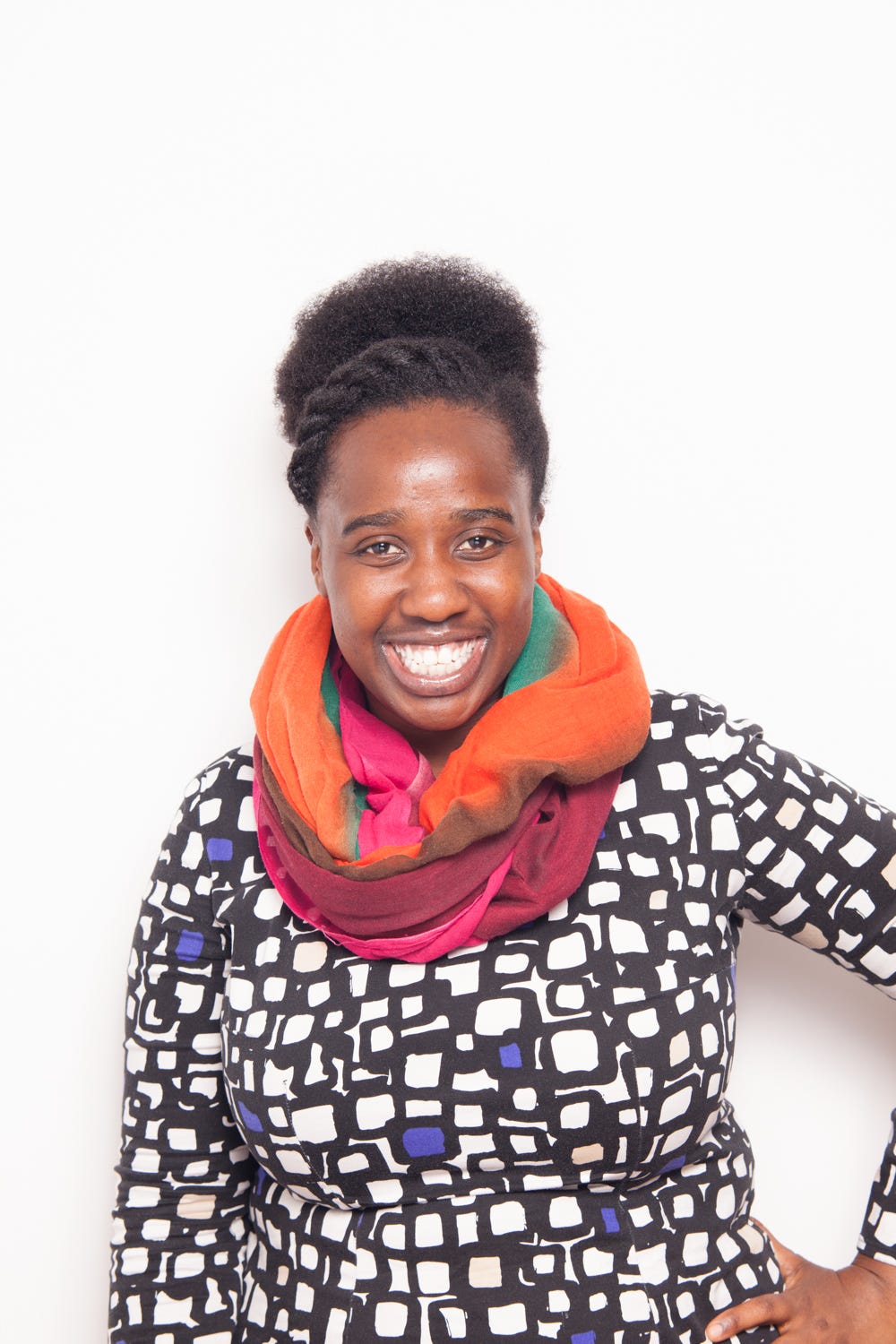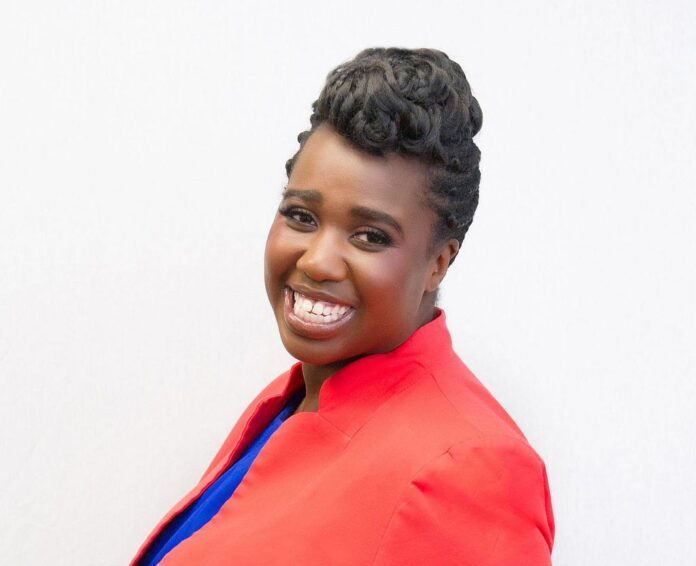Cleoni Crawford Of Resilient Minds 365: How I Navigate Life With Bipolar Disorder, And How You Can Too
An Interview With Stephanie Greer
Self-Acceptance is key. You must first accept that you have a disorder in order to get the help you need.
Living with bipolar disorder presents a unique set of challenges. This condition can profoundly impact an individual’s personal, social, and professional life. But it’s crucial to note that countless individuals with bipolar disorder lead productive and successful lives, transforming their experiences into powerful narratives of strength and resilience. In a world where conversations about mental health are becoming more urgent yet still face stigma and misunderstanding, the timeliness of this series cannot be overstated. We aim to shed light on the realities, strategies, and triumphs of navigating life with this disorder. In this series, we are talking to individuals who have been diagnosed with bipolar disorder, who share their personal journeys, strategies, coping mechanisms, and expert advice to help others in similar situations. As a part of this interview series, I had the pleasure of interviewing Cleoni Crawford.
Cleoni Crawford is a resilient entrepreneur and mental health advocate with a powerful mission. A graduate of U of T, George Brown College and Centennial College, she bravely shares her journey with bipolar disorder in her book “The Music of My Life,” inspired by personal tragedy. Featured in various media outlets, Cleoni’s story drives her passion for mental health advocacy, demonstrated through her podcast “Resilient Minds 365” and her belief that a diagnosis is not a barrier to living a fulfilling life.
Thank you so much for joining us in this interview series! We really appreciate the courage it takes to publicly share your story. Before we start, our readers would love to “get to know you” a bit better. Can you tell us a bit about your background and your childhood backstory?
I was born and raised in Toronto but moved around a lot. I spent a lot time as a child making new friends but not being able to keep them as I had to move. I am the eldest of 13 siblings so I was responsible for a lot around the house and had to grow up very early. By the time I was 12, I became epileptic and had frequent seizures. My teens were spent in the hospital a lot but I still managed to get good grades and be top of my class. I grew up in a musical background and went partying from a young age. Finally, by age 17, I decided to turn my life around and become a Christian. I have been a believer since. Then, at 25, Bipolar entered my life, I haven’t been the same since. However, I have been resilient.
Can you please give us your favorite “Life Lesson Quote”? Can you share how that was relevant to you in your life?
My favorite life lesson quote is a scripture which says, “All things work together for good to them that love the lord…” which basically means that not all things that happen in your life will be good but if you love God, it will work together for good. So, even though I don’t believe that bipolar is actually good, it worked together for good in my life.
Let’s now shift to the main part of our discussion. Can you share what your journey with bipolar disorder has been like?
My journey with bipolar has been hectic. In a nutshell, I have been hospitalized 30 times, sent to prison twice, homeless, escaped from a mental hospital once, and suicidal. However, despite this journey, I have learned to understand my illness and now receive treatment for it through medication and counselling, have gone back to school to learn about mental health, graduated, started my own podcast to raise awareness for mental health, wrote three books, started a support group and became a mother.
Was there a turning point for you when things started to change for the better? Can you please share a story?
My turning point was when I went back to school at George Brown College to take the Transition to Post Secondary Education program for people with mental health and addiction issues. When I started this program, I didn’t know who I was and lost my self due to my illness. I had been hospitalized 25 times by now, went to prison once, and was suicidal. I desperately wanted a change in my life. I found that change when I learned life skills in the TPE program at George Brown College. By the time I was ready to graduate, I was featured on the front page of the school paper, The Dialog, for my new talk show that I was starting about mental health.
Who are some of the important people in your life who have been on this journey with you? How have they either helped you or made things harder?
Some of the important people in my life have been my mother and my sister. They helped me a lot during my journey. My mother in particular, no matter how much we disagreed, she was always there for me and never gave up on me. Other important people to mention were my friends Dawn, Simone, Melissa and Gaysha. These ladies have been very supportive to me. Finally, I am grateful for my church, APC Ministries and Pastor A. Castro for not giving up on me even when I was very difficult to handle.
How has your experience been getting treatment? What do you wish mental health professionals understood better about navigating bipolar disorder?
My experience has been a battle. I have tried 5 different types of medications before something actually worked. What I wish mental health professionals understood is that not everyone benefits from being hospitalized. Some people get worse in hospitals. Every time I was sent to the hospital, it would take me months to get my life back in order because of the trauma experienced there.
I really appreciate you sharing your journey, I believe over time stories like these will make a dramatic impact on the stigma of mental health conditions. Unfortunately, in today’s world, there is still a lot of stigma to navigate. How does stigma show up in your family or culture and how has it affected you?
Stigma shows up in my family as people only like to be around me when I’m stable. If I am having an episode, I am shunned and cast aside. I’m viewed as crazy and abnormal and it really hurts. It has affected me greatly and has made me feel very lonely.
What are a few of the biggest misconceptions and myths out there about bipolar disorder that you would like to dispel?
- We are not crazy, we have a disorder.
- People do not ACT Bipolar, they have bipolar.
- Not all people with Bipolar are unemployed, some are professionals.

Fantastic. Here is the main question of our interview. What are 5 things you learned from your journey that you think other people navigating life with bipolar disorder or their family would benefit from knowing?
1 . Self-Acceptance is key. You must first accept that you have a disorder in order to get the help you need.
2 . Medication is not a bad thing, sometimes it is necessary.
3 . Counselling is therapeutic.
4 . Exercise is so helpful for your mental health.
5 . Create a supportive circle of people that can support you in your journey. They are your lifeline.
How has living with bipolar disorder affected your relationships, both romantic and platonic? Any advice for others who are navigating relationships while managing the condition?
Living with Bipolar has affected both my romantic and platonic relationships. When it comes to romance, I have to give it time before I disclose that I have a mental disorder. Not all men can handle this type of news but some do. Now, when it comes to platonic relationships, there is still stigma. People won’t tell you why they don’t invite you to parties and events, you just ignored. This is very hurtful. However, there are some people that will love you no matter what your illness.
Are there any books, podcasts, or other resources that have helped you understand or manage your condition better?
The book that helped me was An Unquiet Mind by Kay Redfield Jamison. That book inspired me to realize that not all people with Bipolar are unemployed but in fact, some are doctors and professionals. This inspired my podcast Resilient Minds 365.
We are very blessed that some very prominent names in Business, VC funding, Sports, and Entertainment read this column. Is there a person in the world, or in the US with whom you would love to have a private breakfast or lunch, and why? He or she might just see this if we tag them. 🙂
Julie Mango, the Jamaican Comedian and Mental Health Advocate.
How can our readers further follow your work online?
Thank you for your time and thoughtful answers. I know many people will gain so much from hearing this.
About The Interviewer: Stephanie Greer, PhD is the Co-founder and CEO of Akin Mental Health — a company dedicated to guiding families on their journey supporting a loved one with mental health challenges like bipolar disorder, schizophrenia and severe depression. Stephanie is passionate about this topic from her own personal experience growing up with a mother who struggled with bipolar 1 disorder and found a path forward to overcome the obstacles and live well. Stephanie’s professional experience includes a doctorate in neuroscience as well as design research roles at Hopelab and Apple. Stephanie brings this personal passion together with her world-class science and technology background to support families across the US in their personal journeys supporting loved ones with mental illness. To learn more about Akin Mental Health and join our community, visit us at akinmh.com.
Cleoni Crawford Of Resilient Minds 365: How I Navigate Life With Bipolar Disorder, And How You Can… was originally published in Authority Magazine on Medium, where people are continuing the conversation by highlighting and responding to this story.


